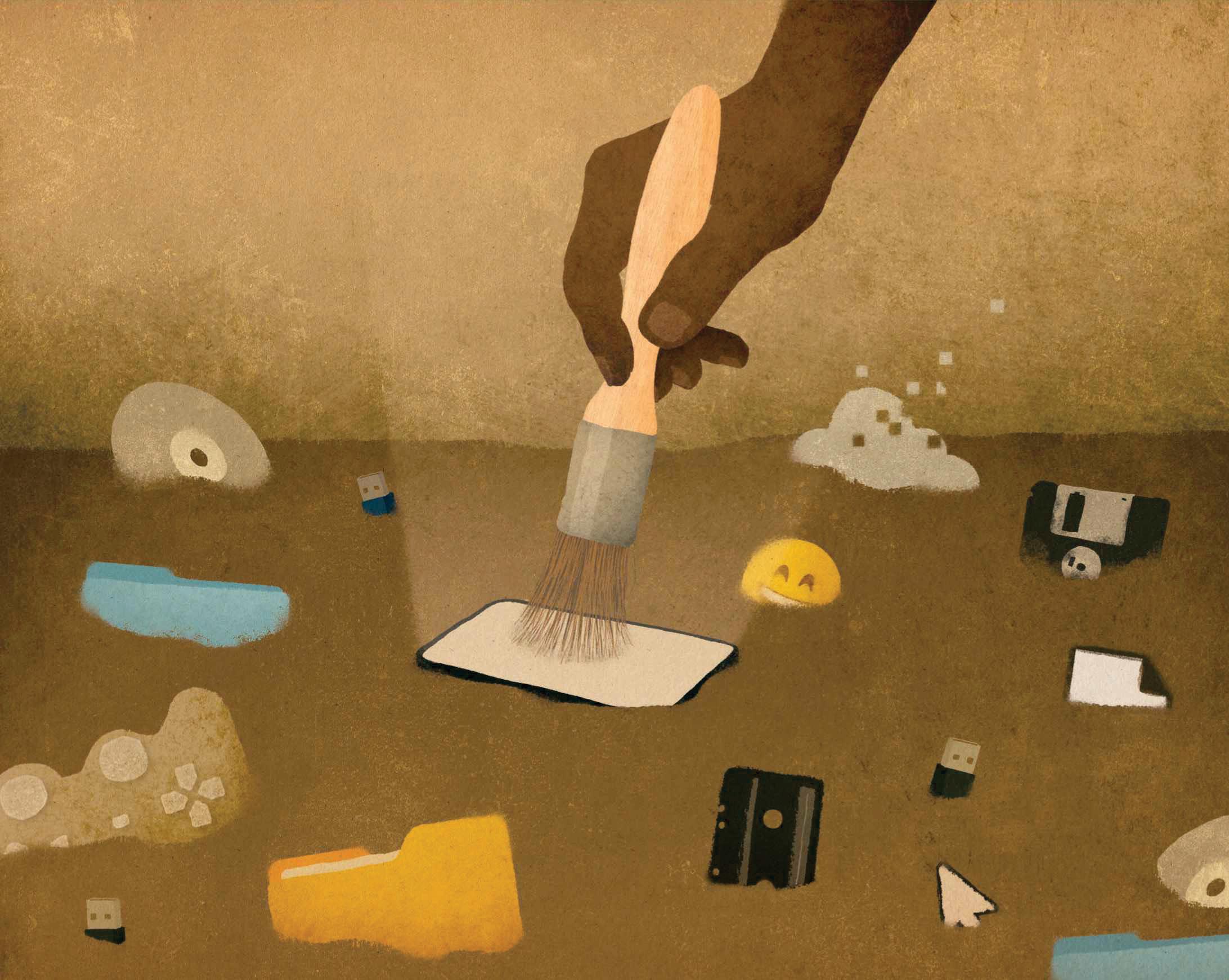Denemek ALTIN - Özgür
"A tidal wave of digital material will overwhelm recordkeeping institutions"
BBC History UK
|October 2025
If you've ever posted a comment on social media, you've created a potential source for future historians. But what problems does this mass of new material pose? Matt Elton asked historians JANE WINTERS and JOHN WILLS about how recent archives differ from those of the past - and how experts might make sense of them

Matt Elton How do the kinds of records created now and in the recent past differ from those left in previous centuries?
Jane Winters Records and sources now come in a whole range of formats. In some cases, they are very familiar analogue sources that have become digital, whereas in others they are in a completely new format. Newspapers offer a great example of how this has changed: we used to read them only in physical form. Then those physical newspapers were digitised, keeping essentially the same structure.
We now have both physical and digital newspapers, which differ in both form and content. An issue of The Guardian published in print today will not contain the same information as the online version: there will also be multimedia material and lots of online comments and conversations, whereas in the past you would have had only letters to the editor, for instance.
And to take the example of people’s reflective writing, that’s a type of source that has also moved into new formats. A diary is not exactly the same as a blog entry or a post on social media, for instance.
 John Wills One example that offers an interesting way of thinking about some of these issues is the ‘Barbenheimer’ phenomenon - the point in 2023 when the movies Barbie and Oppenheimer were released at the same time. That’s a very recent instance of the kind of cultural moment that’s really interesting to research - but doing so is not easy, because you're dealing not just with the films themselves but also the digital content produced by the films’ fandoms, the actors’ response to that content, and the wider public responses to those two movies, in a way that we've never been able to do before.
John Wills One example that offers an interesting way of thinking about some of these issues is the ‘Barbenheimer’ phenomenon - the point in 2023 when the movies Barbie and Oppenheimer were released at the same time. That’s a very recent instance of the kind of cultural moment that’s really interesting to research - but doing so is not easy, because you're dealing not just with the films themselves but also the digital content produced by the films’ fandoms, the actors’ response to that content, and the wider public responses to those two movies, in a way that we've never been able to do before.Bu hikaye BBC History UK dergisinin October 2025 baskısından alınmıştır.
Binlerce özenle seçilmiş premium hikayeye ve 9.000'den fazla dergi ve gazeteye erişmek için Magzter GOLD'a abone olun.
Zaten abone misiniz? Oturum aç
BBC History UK'den DAHA FAZLA HİKAYE

BBC History UK
Hymn to life
Scripted by Alan Bennett and directed by Nicholas Hytner - a collaboration that produced The Madness of King George and The History Boys – The Choral is set in 1916.
1 min
December 2025

BBC History UK
Helen Keller
It was when I was eight or nine years old, growing up in Canada, and I borrowed a book about her from my local library.
2 mins
December 2025

BBC History UK
Spain's miracle
The nation's transition from dictatorship to democracy in the late 1970s surely counts as one of modern Europe's most remarkable stories. On the 50th anniversary of General Franco's death, Paul Preston explores how pluralism arose from the ashes of tyranny
8 mins
December 2025

BBC History UK
Just how many Bayeux Tapestries were there?
As a new theory, put forward by Professor John Blair, questions whether the embroidery was unique, David Musgrove asks historians whether there could have been more than one 'Bayeux Tapestry'
7 mins
December 2025

BBC History UK
In service of a dictator
HARRIET ALDRICH admires a thoughtful exploration of why ordinary Ugandans helped keep a monstrous leader in power despite his regime's horrific violence
2 mins
December 2025

BBC History UK
The Book of Kells is a masterwork of medieval calligraphy and painting
THE BOOK OF KELLS, ONE OF THE GREATEST pieces of medieval art, is today displayed in the library of Trinity College Dublin.
3 mins
December 2025

BBC History UK
Passing interest
In his new book, Roger Luckhurst sets about the monumental task of chronicling the evolution of burial practices. In doing so, he does a wonderful job of exploring millennia of deathly debate, including the cultural meanings behind particular approaches.
1 mins
December 2025

BBC History UK
Is the advance of AI good or bad for history?
As artificial intelligence penetrates almost every aspect of our lives, six historians debate whether the opportunities it offers to the discipline outweigh the threats
8 mins
December 2025

BBC History UK
Beyond the mirage
All serious scholarship on ancient Sparta has to be conducted within the penumbra of the 'mirage Spartiate', a French term coined in 1933 to describe the problem posed by idealised accounts of Sparta.
1 mins
December 2025

BBC History UK
He came, he saw... he crucified pirates
Ancient accounts of Julius Caesar's early life depict an all-action hero who outwitted tyrants and terrorised bandits. But can they be trusted? David S Potter investigates
10 mins
December 2025
Listen
Translate
Change font size

